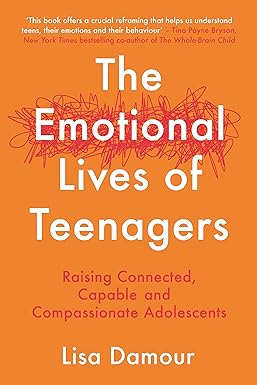Inside: How I’m teaching my kids to give their time and energy to real friendships

When my three children were babies and toddlers, I often worried about them falling and bumping their head. I nursed skinned knees and too many “owies” and “booboos” to count. It hurt me to see them in pain, but the hard truth is, I had no idea that watching them endure the heartache of being cut out of a friend group, left off a birthday invite when the rest of their friends were included, or ghosted by a perceived “bestie” were going to hurt 1000x more. But that’s just part of this gig called parenthood—watching your children get hurt, holding them through the pain, and helping them heal.
Making friends (and keeping them) for some kids is super easy, and for others, can be a challenge. But a major life lesson (that kids—and adults—often learn the hard way) is to stop chasing fake friends who don’t seem to care if you are in their life. Stop fighting for kids who never reciprocate, never reach out first, and act disinterested or even unkind when you’re in their presence. Even if they are in the “popular” group that is coveted by so many in middle school.
If you’re always the one trying to make plans…
If you’re always the one texting first…
If you invite them over time and time again and you’re never welcome at their home…
If you see them actively choose to sit with other friends when you’re in social situations and they don’t invite you to join…
These are signs that maybe you should back off and give your time, focus, and energy to other friends who show up for you.
How to Decide if a Friendship is Worth Fighting For
Obviously there are a myriad of reasons why young children, as well as teens, may not make plans or may not invite my kids over. For example, lots of households have parents who work full time, which means while my kids can invite friends over a lot in the summer, their friends may not be able to reciprocate because they attend day care or go to Grandma’s house.
Also, some kids don’t have the social skills to understand the importance of reaching out or making plans—especially if they’re neurodivergent. We have some friends who love my children dearly, and if we haven’t heard from them in a while, we know it doesn’t mean they don’t want to get together, but rather, something else is the cause for the quiet or lack of communication.
And, lots of kids don’t have the same stable home life that mine do, but they are good friends to have in my children’s lives. As their friends, we show compassion, put in more effort, and host more, which we’re always happy to do for good kids who fill up others with real friendship and kindness.
When choosing friends to give your time, energy, and focus to, it’s important to consider these factors and evaluate relationships from various perspectives.
However, there are definitely scenarios in which it’s just obvious that a friend is checked out. There are times I can tell (and my kids can tell) that a friend seems all set with the friendship and is ready to move on (or already has). Whether it’s their obvious behavior (ghosting their texts, ignoring them in school, making fun of them with other friends) or subtle things like never reaching our prioritizing other friend groups, at some point, you just know.
“Go Where You’re Celebrated, Not Where You’re Tolerated.”
A mom-friend recently shared with me that this is what she tells her kids as they choose which teen friendship groups to nurture and fight for, and which to let go.
And this message also helps my kids understand that they, too, need to be true friends. They should celebrate the kids in their circle, stick up for their buddies, and welcome newcomers—just as they hope other would do for them.
But yes, the dark side of this message—the one my children don’t always want to see—is that if they are only being tolerated, then it’s time to walk away.
I’ve watched two of my children navigate this recently, and it’s like watching them bump their heads all over again (except magnified by a million).
I’ve gently helped them see what they didn’t want to see. We’ve talked about how it makes them feel when they send 5-10 texts and get no response back. Or when my son sees his friends gaming online but he’s not invited to join their party. Or when my daughter finds out she’s not on the birthday invite list for a bestie she’s been close with since first grade.
And sometimes they don’t want to see it. “Maybe she lost her phone,” they’ll quietly say to themselves, desperate for an explanation.
They might continue to reach out, keep inviting those same kids over, and maybe once in a while they’ll get a yes. And maybe they won’t notice the awkwardness, maybe they won’t see the obvious signs that the kid doesn’t really want to be here. Or maybe they do see it and don’t know what to do.
That’s when we, their parents, step in and teach them that even though it hurts, it’s time to let go.
Related: 5 Helpful Ways to Guide Tweens Through a Friendship Ending
Letting Go Hurts, but Holding on to a Fake Friendship Hurts More
My middle school daughter had the same best friend since first grade, but things changed, and the girl simply moved on. It wasn’t a mean girl friendship—although in some ways, I wonder if that would have been easier to deal with, to be honest. Is having your best friend quietly break up with you for an unknown reason even worse? Whatever the cause, I had to help my daughter see the obvious signs that this friendship wasn’t worth chasing anymore. And with raw emotion, she said something that split my heart in two.
“I just miss her, Mom.”
Oh how I’d love to go back to the days of worrying about bumped heads and skinned knees.
When my son came home from school with the news of a birthday party—and the invite list included everyone at the lunch table but him—he was shattered. And again, my mom heart… broken.
But these are the life lessons that make us who we are. These are the painful moments that remind us to seek out healthy friendships with peers who want us around. And, these moments serve as reminders to my kids—remember how much it hurts to be ghosted or cut out of the group so that you don’t treat others that way.
Related: 7 Surefire Ways to Boost Your Middle School Daughter’s Confidence
My Job As Their Parent
The truth is, my kids are kind and funny and I don’t understand why everyone wouldn’t want them around. But it’s not my job to hunt those other children down and demand they befriend my son and daughter. It’s my job to hold them as they hurt, help them heal from the pain, and seek out friendships circles where they’re celebrated, not tolerated.
And, it’s my job to ensure they pay it forward and show others what being a real friend truly means. A good friend celebrates your wins, shows empathy for your struggles, and actively ensures that you’re in their life. Interactions with real friends bring you joy—whether it’s getting a text letting you know they’re thinking of you or planning a whole day together. Good friendship might still take work, but as long as everyone shows up for one another, bonds like that can last a lifetime.
For more tips and resources on helping tweens and tweens navigate these emotional years, we recommend The Emotional Lives of Teenagers by Lisa Damour.

Parenting teens and tweens is a tough job, but you’re not alone. These posts might help:
This Is Why Teen Girls Are So Mean to Their Mothers
10 Commons Battles that Will Destroy the Relationship with Your Teen
Why Seventh Grade Sucks the Most for Tweens and Their Parents
Teen Boys Need These 9 Simple Things to Get Through These Tough Years






xeu28h